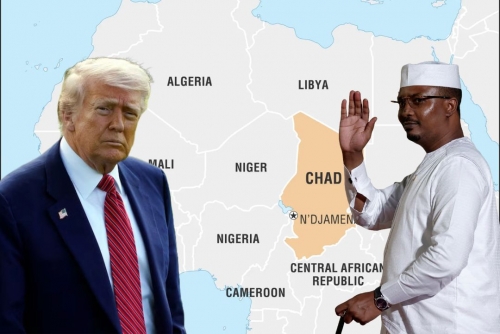Chad Suspends U.S. Visas After Trump Revives Travel Ban on 12 Countries
TDT | Manama
Email: mail@newsofbahrain.com
Chad’s President Mahamat Idriss Déby announced on Thursday that his government will suspend the issuance of visas to U.S. citizens. The decision comes a day after U.S. President Donald Trump reintroduced a travel ban targeting 12 countries, including Chad, citing national security concerns.
President Trump’s policy—which echoes a controversial hallmark of his first term—targets countries he claims have “deficient” screening and vetting procedures or have historically failed to repatriate their citizens who overstay U.S. visas. The list includes Afghanistan, Myanmar, Chad, the Republic of Congo, Equatorial Guinea, Eritrea, Haiti, Iran, Libya, Somalia, Sudan, and Yemen. Additional travel restrictions will be imposed on visitors from seven other nations.
Chad’s President, in a strongly worded statement posted on Facebook, declared the suspension of U.S. visa processing in Chad, framing it as an issue of national dignity and sovereignty.
“Chad has no planes to offer, no billions of dollars to give—but Chad has his dignity and pride,” Déby wrote, making a pointed reference to a $400 million luxury aircraft gifted by Qatar to his administration.
The announcement has added to a wave of criticism from African nations affected by the ban. In the Republic of Congo, government spokesperson Thierry Moungalla called the U.S. decision a “mistake,” attributing it to a misunderstanding involving an armed attack in the United States. He asserted that Congo is neither a terrorist hub nor associated with any extremist activities, and expects diplomatic clarification soon.
Sierra Leone, which faces heightened travel restrictions rather than a full ban, also responded diplomatically. Information Minister Chernor Bah affirmed the country’s commitment to working with U.S. authorities to address concerns and ensure progress on bilateral relations.
The renewed travel ban is expected to take effect Monday at 12:01 a.m. Washington time. Analysts predict this move will further strain U.S. relations with several African and Middle Eastern nations, especially as they voice concerns about fairness, transparency, and the implications for diplomacy and migration.
Related Posts

